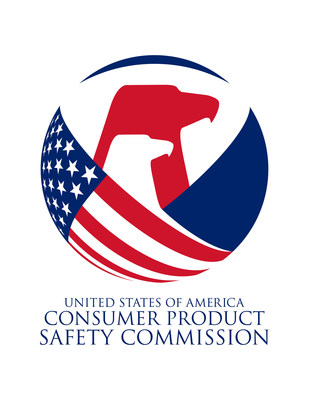It's Hurricane Season: You Have the Power to Be Prepared!
WASHINGTON, June 1, 2018 /PRNewswire-USNewswire/ -- June 1 marks the start of the 2018 Atlantic hurricane season, and meteorologists have forecast it to be an active one. This means powerful storms and hurricanes are likely to hit the region hard, affecting millions of Americans. The U.S. Consumer Product Safety Commission (CPSC) wants to remind everyone that you have the power to prepare. Don't sacrifice safety, before or after the storm.

Before the Storm
Consumers need to be especially careful during power outages, as the risk of carbon monoxide (CO) poisoning and fire increase. That's why now is the time to make sure:
- There are battery-operated CO alarms or CO alarms with battery backup installed in your home-- outside separate sleeping areas and on each floor of your home.
- CO and smoke alarms are working properly.
- Your generator has had proper maintenance and you have the proper extension cords for connecting the items you need to power.
- Read the label on the generator and the owner's manual, and follow the instructions.
Why is this important? Poisonous carbon monoxide from portable generators can kill you and your family in minutes. CO is an invisible killer. It's colorless and odorless. More than 400 people die each year in the United States from CO poisoning, about 70 of those are related to portable generators.
After the Storm
The storm has hit and the power is out. Now what? Follow these life-saving tips:
- Operate portable generators outside only away from doors and windows and direct the generator's exhaust away from the home and any other buildings that someone could enter. The CDC recommends placing the portable generator at least 20 feet away from the house.
- Never operate a portable generator inside a home, garage, basement, crawlspace, shed, or on the porch. Opening doors or windows will not provide enough ventilation to prevent the buildup of lethal levels of CO.
- Never ignore a carbon monoxide alarm when it rings. Get outside immediately. Then call 911.
- Get to fresh air immediately if you start to feel sick, weak or dizzy, and then call 911. CO poisoning from portable generators can happen so quickly that exposed persons may become unconscious instead of experiencing these symptoms.
Other hazards include:
CHARCOAL DANGER:
- Never use charcoal indoors. Burning charcoal in an enclosed space can produce lethal levels of carbon monoxide.
CANDLES:
- Use caution when burning candles. Use flashlights instead. If you must use candles, do not burn them on or near anything that can catch fire. Never leave burning candles unattended. Extinguish candles when you leave the room.
WET APPLIANCES:
- Look for signs that your appliances have gotten wet. Discard electrical or gas appliances that have been wet because they pose electric shock and fire hazards.
- Before using your appliances, have a professional or your gas or electric company evaluate your home and replace all gas control valves, electrical wiring, circuit breakers, and fuses that have been under water.
GAS LEAKS: IF YOU SMELL GAS, REPORT IT
If you smell or hear gas, do not turn lights on or off, or use electrical equipment, including a phone.
Remember, you have the power to prepare and be safe!
CPSC resources:
CPSC spokespeople are available for interviews. Call the office of communications to arrange for an interview at 301- 504-7908.
SOURCE U.S. Consumer Product Safety Commission
News published on and distributed by:



